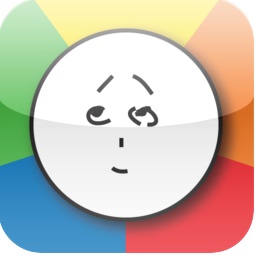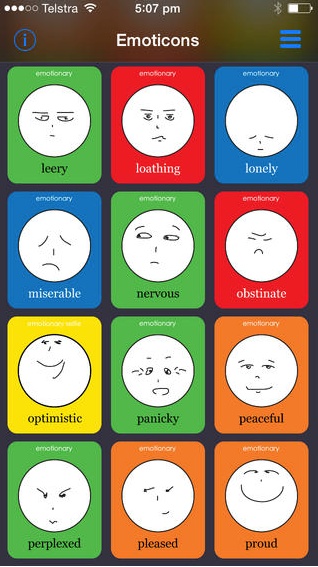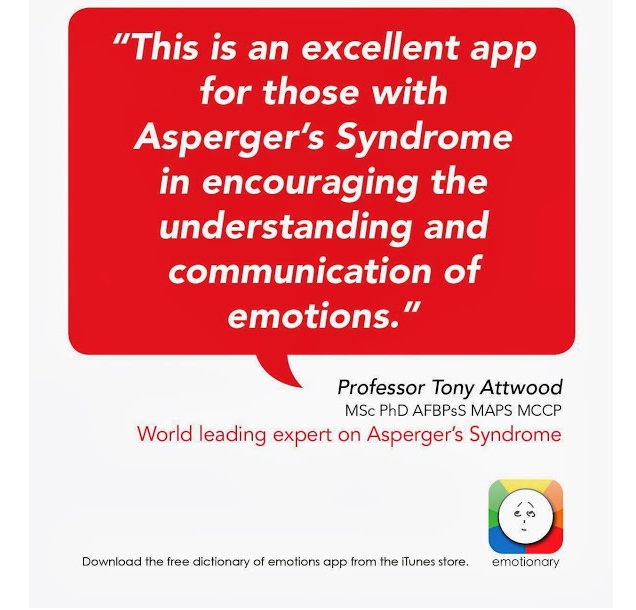Are You Emotionally Smarter Than a 5 Year Old?

Are you emotionally smarter than a 5 year old?
All children start school with a basic vocabulary of emotions. Most would be able to identify angry, happy and sad. There’d probably be a fear-based feeling like scared in the mix. But a handful of feeling words is what you’d expect from a five year old.
What’s surprising is the number of young people who leave school twelve years later with much the same vocabulary of emotions.
Disorders like ADHD or Asperger’s might explain a limited vocabulary of emotions in an adult, but anecdotal feedback suggests it is very common for adults to continue through life with only a handful of words to describe their feelings.
Whether this limited vocabulary of emotions is as a result of society’s discomfort with “oversharing” and the desire to keep emotions to oneself, or simply part of an overall issue with adult literacy, the results are the same. Lower levels of emotional intelligence (EI/EQ).
EI is the ability to deal with emotions – as well as the feelings, thoughts, and physical sensations that accompany emotions – in a flexible and positive way.
Improved educational outcomes and employment prospects are linked to higher emotional intelligence. And unlike IQ, EQ can be taught. But all too often the focus is on encouraging young people to regulate their emotions before they have developed the building blocks of emotional literacy.
One of the key planks in the respected Yale University RULER program is “labeling”. According to the Centre for Emotional Intelligence at Yale, “labeling the full range of emotions with a rich vocabulary” is one of the 5 key skills.
There is a growing body of evidence to show that having the language to communicate effectively in adversarial situations reduces displays of physical aggression and verbal abuse in students, and can have a profound effect on their ability to self-regulate.
The digital age has added a sense of urgency to emotional literacy. With a screen between us in so many of our communications, misunderstandings are rife.
Pinging off an email to a colleague telling them you’re angry will get a different response to saying you’re frustrated with a situation.
And while the limitations of text as a medium to express emotions is generally accepted, spawning the overuse of haha smiley face ; – ) , the question has to be asked, is the problem really the keyboard, or our vocabulary of emotions.
 A new digital dictionary of emotions is proving a fun, interactive way to develop emotional literacy.
A new digital dictionary of emotions is proving a fun, interactive way to develop emotional literacy.
The free emotionary app by Funny Feelings was developed in Melbourne, for people of all ages to expand their vocabulary of emotions. With a library of over 100 large, accurately expressive, labelled emoticons, it has already found support in some unexpected quarters.
Delayed emotional maturity, limited vocabulary to describe emotions and emotional management issues, often anger, are all associated with Autism Spectrum Disorder (ASD).
While not designed exclusively for those with ASD, the emotionary app is helping to break down the “emotional storm” of autism.
Professor Attwood, world-leading authority on Asperger’s syndrome believes the emotionary app has “value for those with an Autism Spectrum Disorder from Asperger’s syndrome to even severe autism”.
A review on the emotionary app posted on the US iTunes store explains how.
“I am autistic and emotions are difficult for me to articulate in the moment. This app helps me change “I’m angry” to actually, I’m more frustrated and worried.
The granularity of emotion definition helps me identify and label the different emotions experienced in a moment rather than just being overwhelmed and shutting down.
This also helps me understand and choose the correct steps to resolve the problem (in the case of negative emotions) or identify behavior to continue (for positive emotions.)
I love using the [electronic] cards with the emoticons…I like how the cards are colorcoded, too. It’s easy to say “I am having too many green emotions” or “today is an orange day.”
It’s a lot easier for me to have a conversation about solutions to what is bothering me when I am able to break the emotional storm into its individual parts and understand how they are working together. These cards in this app make my life easier.”
 As the creator of the emotionary app, I was amazed that someone halfway around the world had discovered the app, and was using it in just the way I had hoped. And that this thoughtful, articulate person, who wanted to express his emotions effectively, well, he was autistic.
As the creator of the emotionary app, I was amazed that someone halfway around the world had discovered the app, and was using it in just the way I had hoped. And that this thoughtful, articulate person, who wanted to express his emotions effectively, well, he was autistic.
I just hope that we can all take a leaf out of this guy’s book. And work positively with our emotions to navigate life more joyfully. Rather than sticking with the handful of feeling words we collected as a five year old.
Sarah Hatherley is the creator of the free emotionary app by Funny Feelings. Emotionary+ features draw-your-own shareable emoticons.
Just launched EQ Game by Funny Feelings an iPad app. Full of quirky animations, character filled illustrations, stories and quizzes. It’s a fun way to challenge and expand your vocabulary of emotions.
\











I should explain. My struggle with ADD has been going on like forever. For a long time I was not even diagnosed and now im just strarting to find out how I can manage my symptoms. On a good day I just suffer from lack of concentration, but if I havent had enough medicine I can easily start to get severely chaotic and even anxious. Most of the time I just feel distractable.
My borther says im better now compared with last year, but i put that down to skill. Alcohol will devastate any chance of good health in your resources. If you dont quit you will se your body and mind decay. My ability to sleep depends to the extreme on feeling that her world is fantastic.